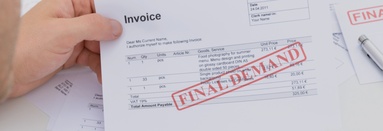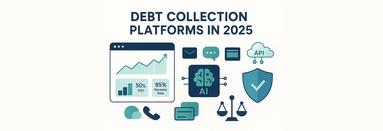Late payments are an unavoidable reality in business. Even well-intentioned clients sometimes hit financial turbulence, leaving unpaid invoices that disrupt your cash flow and strain relationships. For growing companies and established enterprises alike, how you handle those overdue accounts can define your reputation and financial stability.
Instead of resorting immediately to legal action or writing off the loss, negotiating a structured payment plan often provides a balanced solution—one that protects your interests while giving the debtor a chance to make things right.
In this guide, we’ll walk through practical steps to negotiate repayment plans effectively, maintain professionalism, and, when necessary, leverage Retrievables, a trusted platform that connects businesses with top-tier commercial debt collection attorneys and agencies.
Why Payment Plans Matter
A payment plan is more than a courtesy; it’s a strategic recovery tool. It gives your business a predictable path to recoup funds while helping the debtor avoid insolvency or legal escalation.
Handled correctly, a payment plan:
- Converts uncertain debt into a defined cash flow stream.
- Maintains goodwill with clients who may do business again in the future.
- Reduces administrative costs compared to litigation.
It’s not about letting someone off the hook—it’s about increasing the likelihood of full repayment through structure and cooperation.
Step 1: Understand the Debtor’s Financial Situation
Effective negotiation starts with information. Before making any offer, determine the debtor’s financial health.
Ask yourself:
- Is their problem temporary or ongoing?
- Have they been responsive or evasive?
- Do they have assets or receivables that could support repayment?
For commercial accounts, reviewing available financial data—like credit reports, payment histories, or public filings—can clarify what’s realistic. If you lack access to this information, professional help from Retrievables can connect you with experts who can assess a debtor’s financial position accurately.
Step 2: Define Your Objectives and Limits
Before any conversation, decide what “acceptable” looks like. Are you seeking full payment over time or a partial settlement in exchange for faster recovery?
Knowing your minimum terms prevents impulsive agreements under pressure. A successful plan should strike a balance: affordable for the debtor, yet sufficient for your business to stay whole.
Remember: flexibility shows goodwill, but clarity protects your company.
Step 3: Approach the Debtor with Professional Courtesy
Tone matters more than most realize. Starting negotiations with blame or frustration often shuts doors that could stay open.
Reach out using calm, businesslike language such as:
“We’d like to discuss options for bringing your account current in a way that works for both sides.”
This approach positions you as a problem-solver rather than an adversary. Initiate contact in writing to create a record, then follow up with a phone or video meeting to discuss details.
Step 4: Explore the Debtor’s Ability to Pay
Once the discussion begins, focus on what the debtor can realistically pay and when. Encourage transparency by asking open-ended questions:
- “What payment schedule feels sustainable for your business right now?”
- “Would smaller, more frequent payments be easier to manage?”
If possible, request supporting documents like sales forecasts or cash flow projections. They provide a clearer sense of whether the debtor’s proposal aligns with financial reality.
Step 5: Design a Practical Repayment Plan
After assessing their capacity, outline a repayment schedule. The structure might include:
- Regular installments: weekly, biweekly, or monthly.
- Defined due dates: specific calendar deadlines prevent confusion.
- Clear totals: showing the total owed and per-installment breakdown.
- Consequences for default: specify what happens if payments stop.
If you decide to include interest or late fees, make sure they are reasonable and legally compliant.
A payment plan should be formalized in writing—preferably signed by both parties—to make it enforceable if the debtor fails to meet their obligations.
Step 6: Use Empathy Without Losing Authority
Empathy doesn’t weaken your position; it strengthens communication. Showing understanding of a debtor’s circumstances can turn a tense situation into a collaborative problem-solving session.
For instance:
“We understand cash flow has been tight for many businesses this quarter. Let’s create a schedule that gives you space to recover while ensuring consistent progress on the balance.”
Empathy fosters trust—but boundaries maintain respect. Keep the conversation centered on solutions, not excuses.
Step 7: Document Everything Clearly
Every detail of the agreement should be captured in writing. Include:
- The total debt amount
- Payment frequency and amounts
- Start and end dates
- Applicable fees or interest (if any)
- A clause outlining what happens in case of missed payments
Both parties should sign and retain copies. Consider using a digital contract platform to streamline the process and ensure validity across jurisdictions.
Step 8: Monitor Payments Consistently
Once the plan is active, oversight becomes key. Send gentle reminders before each due date and confirm receipt afterward. Automation tools can simplify this task.
If a payment is missed, don’t wait. Contact the debtor promptly to determine the reason and decide whether an adjustment or escalation is appropriate.
Consistency signals professionalism—and debtors tend to take repayment more seriously when they know the creditor is paying attention.
Step 9: Recognize When to Escalate
Even well-structured payment plans can fail. When communication stops or promises are repeatedly broken, it’s time to involve professionals.
Escalation doesn’t mean hostility—it means protecting your business interests. A commercial debt collection agency or specialized attorney can pursue recovery while ensuring compliance with legal and ethical standards.
This is precisely where Retrievables becomes an invaluable partner.
How Retrievables Supports Successful Debt Recovery
Retrievables is built to help businesses like yours recover outstanding debts efficiently and professionally. Instead of wasting hours searching for reliable help, you can use Retrievables’ platform to find the most suitable debt collection attorney or agency for your specific case.
Here’s how Retrievables strengthens your position:
- Smart Matching: Retrievables connects you with debt recovery professionals based on your industry, claim size, and debtor type.
- Professional Negotiation Support: The attorneys and agencies in Retrievables’ network understand how to negotiate effectively while maintaining your company’s reputation.
- Data-Driven Insights: Gain access to valuable debtor information before you negotiate, improving accuracy and leverage.
- Legal Continuity: If a payment plan fails, Retrievables ensures a smooth transition to legal enforcement when needed.
- Reputation Protection: The platform emphasizes ethical, compliant recovery—helping you get paid without damaging business relationships.
For large enterprises managing multiple accounts, Retrievables offers a streamlined, scalable solution that saves time and maximizes recoveries. Learn more at Retrievables.com.
Step 10: Keep Professional Boundaries Intact
Even if the negotiation becomes friendly, maintain formality. Avoid verbal agreements or personal guarantees without documentation. Stick to written terms and official channels of communication.
Professional boundaries preserve credibility and ensure that any future disputes can be resolved with evidence—not emotion.
Step 11: Strengthen Your Internal Credit Policies
Every overdue account is a lesson in prevention. Once you’ve finalized or enforced a payment plan, review your internal policies.
Ask:
- Could you have detected risk earlier through better credit screening?
- Should payment terms be tightened or deposits required upfront?
- How quickly did your team act after the first missed payment?
Continual improvement in credit management reduces the likelihood of future defaults and improves your overall cash flow stability.
Frequently Asked Questions
What’s the right way to begin a payment plan discussion?
Start respectfully. Acknowledge the issue without blame and express your intention to find a solution that benefits both sides. This encourages cooperation instead of defensiveness.
Should I offer discounts or waive interest for faster repayment?
If it improves your chances of recovering most of the balance quickly, yes. However, ensure the incentive still aligns with your company’s financial goals.
How long should a typical payment plan last?
Three to twelve months is common, depending on the debt size and debtor’s capacity. Shorter plans reduce risk but may be harder to sustain.
What happens if the debtor defaults on the new plan?
Act swiftly. Communicate, reassess, and if necessary, involve Retrievables to connect with a collection attorney or agency that can enforce repayment through proper channels.
Can payment plans damage future business relationships?
Handled professionally, they can actually strengthen relationships by showing fairness and understanding during difficult times.
Conclusion
Negotiating payment plans with debtors is both an art and a process of strategic communication. By combining empathy with clear structure, you can turn nonpayment into a manageable arrangement—and preserve your professional reputation in the process.
Still, not every case ends smoothly. When debtors default or refuse to cooperate, Retrievables ensures you’re not alone. The platform connects your business to specialized debt collection attorneys and agencies equipped to handle even the toughest cases.
With preparation, professionalism, and the right partners, you can transform debt challenges into sustainable solutions—and keep your business finances healthy and predictable.
Back to top
































